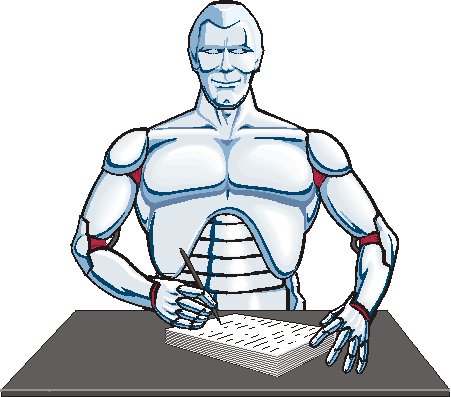Robots versus People
From the robot marketers' point of view, the competitors of robots are people. People need little capital investment and can be laid off when orders drop; they are easily programmed; they are easily replaced when in need of maintenance; and they are incredibly dexterous and adaptable compared to any machines.
On the other hand, people come in a narrow range of sizes. Between a fragile, small woman and a brawny, large man the strength ratio is less than five to one and the reach distance ratio is less than two to one. Both are equally sensitive to heat, fumes, and noise. Machines, on the other hand, range from micro-manipulators for use under a microscope to steel mill cranes and can be made insensitive to almost any environment.
MOBOT Corp. was one of the first to sell Cartesian robots, starting in 1973. As my own robot salesman I found that proposals for tasks easily done by humans were very difficult to sell, but proposals for tasks for which humans required walking, lifting heavy objects, long reach, heavy tools, etc. were much easier to sell. In short, I could sell robots to handle large, heavy loads through long distances. We enlarged our machines and succeeded. The last robot sold before the company's acquisition carried 300 pound jet engine part fixtures and loaded them with extreme precision into a row of large NC lathes spaced along a 400 foot row. Try that with jointed arms.

